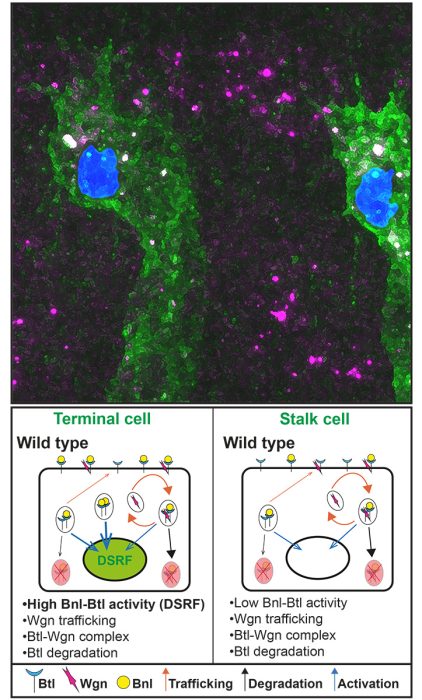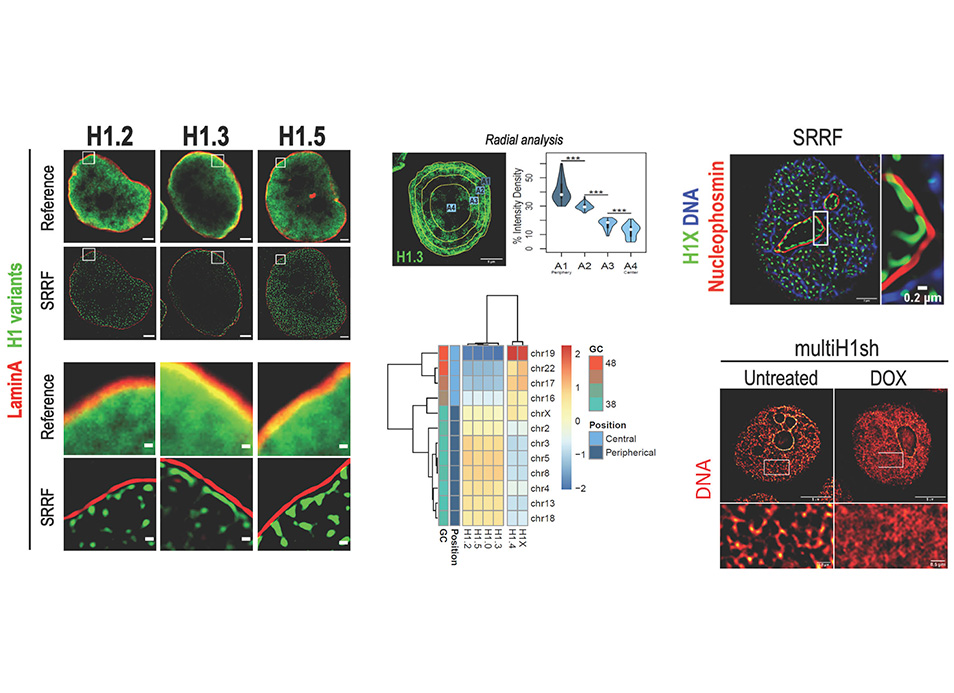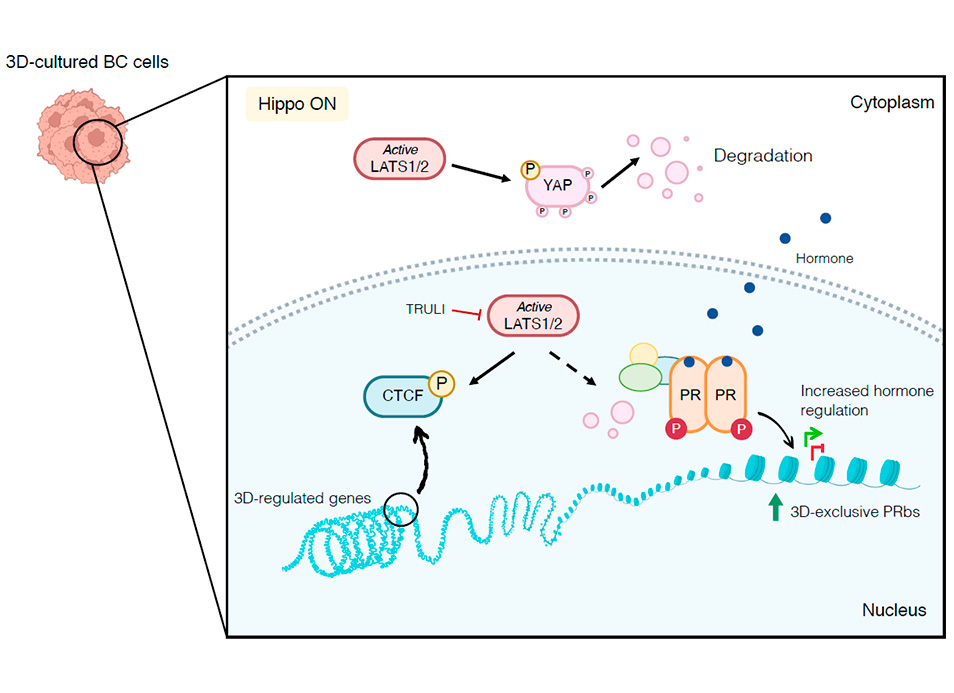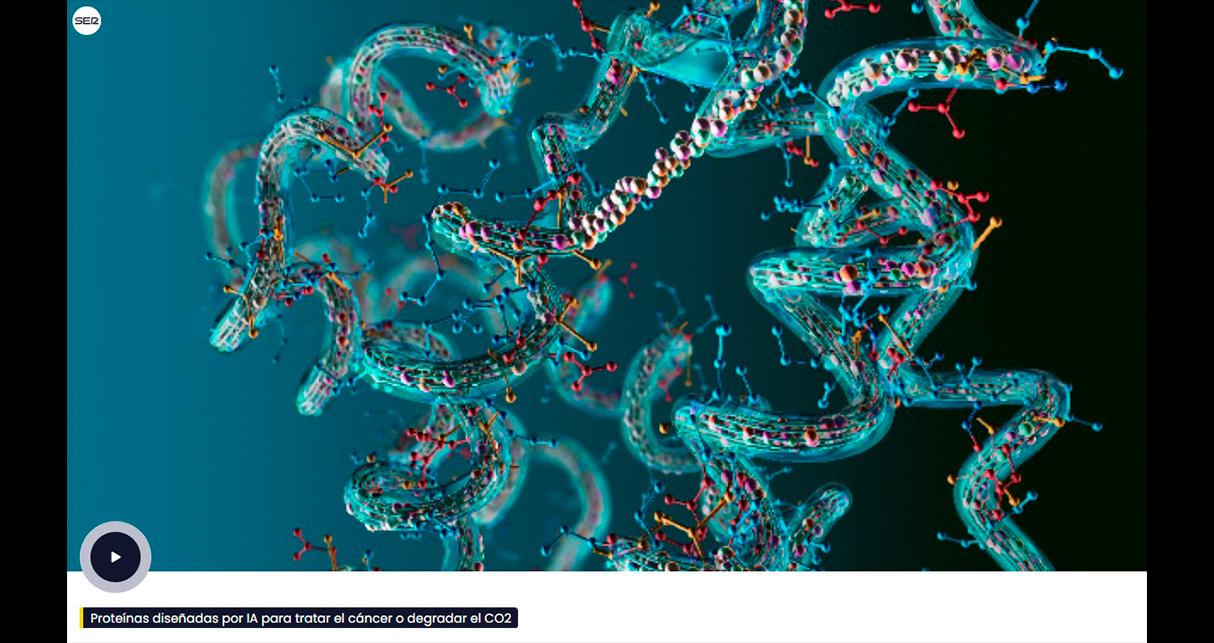New publication in eLife of the Jordan Lab in collaboration with the IBMB Imaging Platform showing that…
The TNFR Wengen regulates the FGF pathway by an unconventional mechanism
The Llimargas lab identifies an unconventional mechanism of activity for a TNF Receptor (TNFR). They find that during the formation of the Drosophila tracheal (respiratory) system, the TNFR-Wengen does not act as a canonical receptor binding its ligand and transducing the signal through its downstream cascade. Instead, TNFR-Wengen acts by forming a complex and regulating the activity of another receptor, the FGFR-Breathless. FGFRs and TNFRs are critical receptors in health and disease, and we propose that binding unrelated proteins may be a general mechanism of activity for TNFRs.
Abstract
Unveiling the molecular mechanisms of receptor activation has led to much understanding of development as well as the identification of important drug targets. We use the Drosophila tracheal system to study the activity of two families of widely used and conserved receptors, the TNFRs and the RTK-FGFRs. Breathless, an FGFR, controls the program of differentiation of the tracheal terminal cells in response to ligand activation. Here we identify a role for Wengen, a TNFR, in repressing the terminal cell program by regulating the MAPK pathway downstream of Breathless. We find that Wengen acts independently of both its canonical ligand and downstream pathway genes. Wengen does not stably localise at the membrane and is instead internalised — a trafficking that seems essential for activity. We show that Breathless and Wengen colocalise in intracellular vesicles and form a complex. Furthermore, Wengen regulates Breathless accumulation, possibly regulating Breathless trafficking and degradation. We propose that, in the tracheal context, Wengen interacts with Breathless to regulate its activity, and suggest that such unconventional mechanism, involving binding by TNFRs to unrelated proteins, may be a general strategy of TNFRs.
Reference:
Letizia, A., Espinàs, M.L., Giannios, P. and Llimargas, M. The TNFR Wengen regulates the FGF pathway by an unconventional mechanism. Nat Commun 14, 5874 (2023). https://doi.org/10.1038/s41467-023-41549-3




